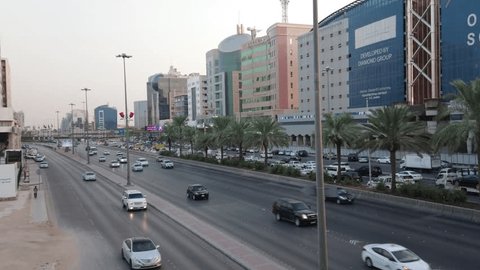The Kingdom of Saudi Arabia is witnessing an infrastructural transformation that aligns with the ambitious goals of Vision 2030. One of the most significant steps in this evolution is the introduction of the Saudi Highway Code (SHC 101 – General), which sets the foundation for a safer, more resilient, and uniform national road network. This groundbreaking initiative promises not just to upgrade the transportation sector but to redefine how roads are planned, designed, constructed, operated, and maintained throughout the Kingdom.

SHC 101 – General is the introductory volume of the Saudi Highway Code (SHC) and serves as the backbone for a unified, comprehensive, and modernized highway development framework in Saudi Arabia. It lays down the guidelines, standards, and protocols essential for all highway-related activities and is designed to replace the previously fragmented and outdated road standards.
As part of Saudi Arabia’s Vision 2030, the country aims to become a strategic international logistics hub. An efficient and modern road network is crucial to achieving this objective. SHC 101 addresses the urgent need for consistent and high-quality infrastructure development, which is essential for economic diversification and sustainable growth.
The existing highway standards in Saudi Arabia were criticized for:
SHC 101 addresses all these issues through a unified national code that incorporates global best practices while being tailored to Saudi Arabia’s unique geographical and socio-economic context.
SHC 101 is applicable across the entire Kingdom and covers:
By defining clear roles, responsibilities, and protocols, SHC 101 ensures consistent quality and performance of infrastructure projects across regions and jurisdictions.
SHC 101 emphasizes a comprehensive lifecycle methodology:
This classification ensures that every step in a project is aligned with standardized procedures, minimizing risks and maximizing efficiency.
SHC 101 was developed through a rigorous consultative process that included:
This participatory planning model enhances transparency, reduces friction among authorities, and ensures broad-based acceptance.
SHC 101 promotes flexibility through a clearly defined Deviation and Relaxation Procedure, allowing for innovative solutions or necessary exceptions. However, these deviations must be thoroughly documented, justified, and approved by certified professionals and relevant authorities.
The SHC is structured to uphold high standards in:
Saudi Arabia’s diverse landscape—from deserts to highlands—demands robust and adaptive infrastructure. SHC 101 recognizes this challenge and integrates:
Moreover, the inclusion of Autonomous Vehicles Requirements (SHC 801) ensures that Saudi Arabia’s highways are future-ready.
The Roads General Authority (RGA) has been designated as the lead agency for the SHC. This centralization ensures:
The SHC is available digitally in both Arabic and English, promoting accessibility and integration across projects.
The launch of SHC 101 signifies more than just a regulatory update—it marks a paradigm shift in how infrastructure will shape Saudi Arabia’s future. It lays the groundwork for a safe, efficient, and sustainable transport network that will support the Kingdom’s socio-economic goals for decades to come.
Whether you're a policymaker, civil engineer, urban planner, or contractor, understanding and implementing SHC 101 is vital to building the next generation of resilient and smart highways in Saudi Arabia.
RoadVision AI is revolutionizing the way we build and maintain infrastructure by leveraging the power of AI in roads to enhance road safety and optimize road management. By utilizing cutting-edge roads AI technology, the platform enables the early detection of potholes, cracks, and other road surface issues, ensuring timely maintenance and improved road conditions. With a mission to create smarter, safer, and more sustainable roads, RoadVision AI ensures full compliance with IRC Codes, empowering engineers and stakeholders to make data-driven decisions that reduce costs, minimize risks, and improve the overall transportation experience.
Q1. What is SHC 101 and why is it important for road safety in Saudi Arabia?
SHC 101 is Saudi Arabia’s national standard for highway design and construction. It sets guidelines to ensure roads are built with high safety, durability, and climate resilience - especially in extreme desert conditions.
Q2. How does SHC 101 help in building resilient road infrastructure?
The standard emphasizes climate-adaptive materials, proper drainage design, and surface durability to withstand high temperatures and sandstorms, helping engineers build resilient roads suited to Saudi Arabia’s environment.
Q3. Who should follow SHC 101 standards in road projects?
Government bodies, infrastructure developers, and civil engineers working on road design in Saudi Arabia must follow SHC 101 to ensure compliance with national safety, performance, and sustainability benchmarks.